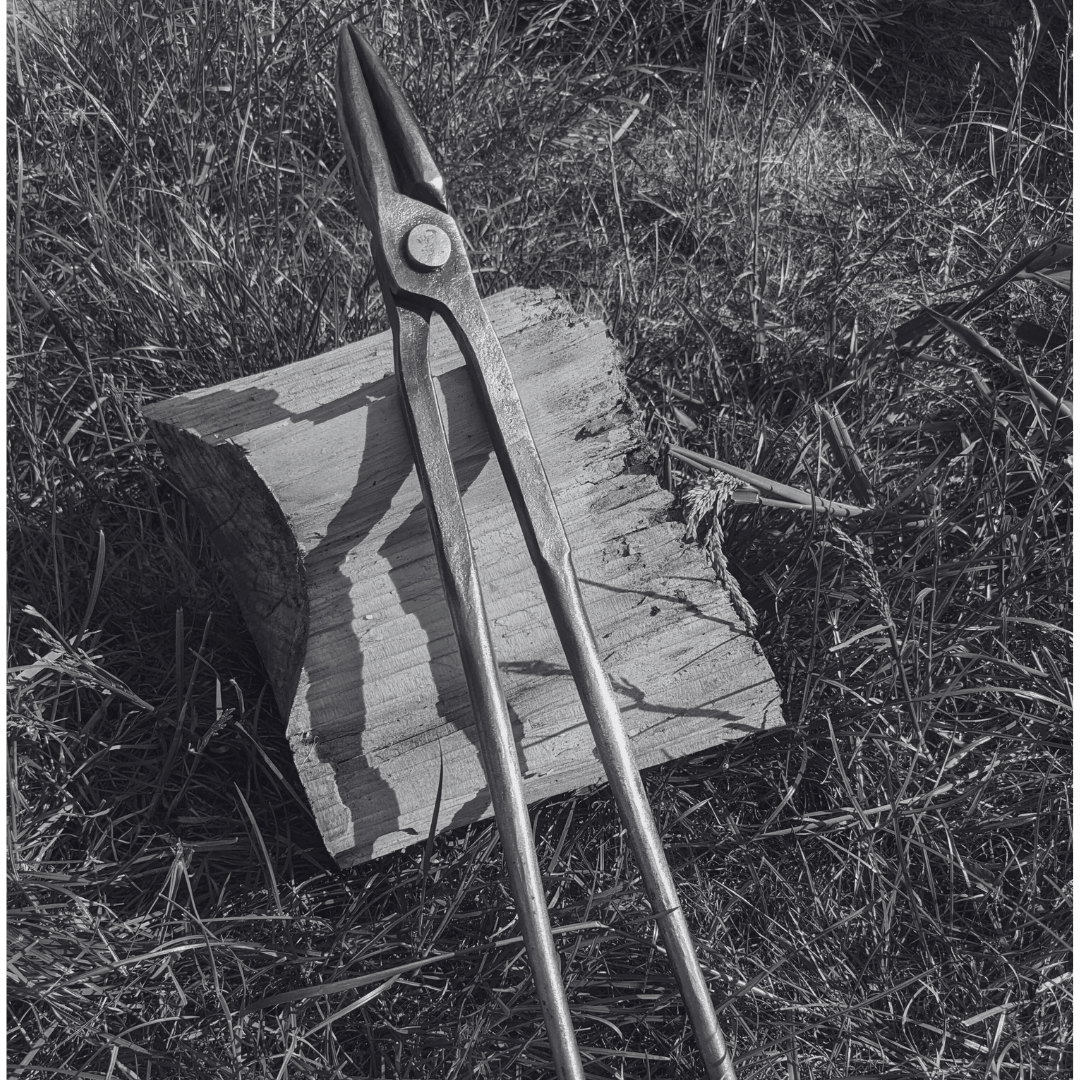
Our courses.
We currently offer two fixed courses, An Introduction to Blacksmithing: Bottle Opener and Intermediate Blacksmithing: Tongs. You can find more details on each course and a “Book Now” button to book onto the course below.
Looking for something else? Visit our Contact form and submit an enquiry about custom courses based upon your interests or other types of blacksmithing you’d like to try, and we can work with you on coming up with a course especially for you.
An Introduction to Blacksmithing: Bottle Opener
This beginner course teaches the basic techniques and skills of the blacksmithing, equipping you with the fundamental skills required to forge your own creations.
An ideal gift for the creatives, makers, and old blokes alike.
-
Safety discussion
The course starts with a talk about safety, the dangers of hot steel, and the fumes and chemicals with which you could come into contact. You’ll be provided with all the necessary safety equipment including eye protection and gloves.
Introduction to blacksmithing
A deep dive into the different tools in a blacksmith’s kit (things like forges, anvils, hammers, tongs, vices, fullers, and swages).
You’ll learn about what the tools are used for and learn use them throughout the day.
The forge is then lit and the course starts with learning basic techniques. You’ll learn about how steel moves, practise forging tapers, drawing out, upsetting, setting down and more.
Creating your own work
With those building blocks, we move on to making something from start to finish. This is normally a bottle opener, as it is something achievable that means you’ll leave the course with a finished item. Other items can be tackled at your request, but be sure to let us know before hand so we can ensure we have appropriate materials.
Cost and length
The course runs for 5 hours with a 30 minute lunch, starting at 9:00am and running until 1:00pm.
The course costs £150, which covers all materials and fuel used in the course.
Intermediate Blacksmithing: Tongs
In this course, students will expand their skills and understanding by creating tongs. If you’ve done some courses before or spent some time at the anvil and want to enhance your capabilities tongs are often the next step.
Tongs are a critical tool in blacksmithing as the ability to securely hold your workpiece is a necessity in the pursuit of quality work.
-
Safety discussion
The session starts with a reminder talk about safety, the dangers of hot steel, and the fumes and chemicals with which you could come into contact. You’ll be provided with all the necessary safety equipment including eye protection and gloves.
Introduction to tongs
It cannot be overstated how vital tongs are to the craft of blacksmithing. As one of the most essential tools, they form a cornerstone of your skillset as a blacksmith. The ability to forge your own set of tongs is a critical skill to possess, as you will constantly find yourself in need of tongs with varying shapes and sizes to accommodate the task at hand. This is because securely holding and manoeuvring the work piece is a necessity in order to produce high quality work. We’ll start by setting up the forge and lighting it, designing the tongs (choosing the nib style and size), organising materials, and prepping the steel.
Nib style options
Scrolling tongs (pictured) - used for getting into tight spaces, finalising scrolls, bend metal
Flat-bit tongs - used for general purpose, good for holding many types of stock, with an optional groove in the centre for holding narrow bar stock (in both directions)
Box-jaw tongs - specifically used for holding flat bar stock
Wolf-jaw tongs - used for general purpose, excellent for holding square bar stock
Bolt-jaw tongs - with a space behind the nib, used for protecting the end of the work piece, excellent for holding round and square stock
There are many other weird and wonderful tongs for holding all variety of work.
Forging Operations
We’ll begin forging the tongs, starting with isolating material for the nibs (jaw), boss (pivot point), and transition to the reins (handles). We’ll do “smith and striker” (with the student/instructor alternating between swinging the sledgehammer and controlling the forging) to draw out the reins.
Finishing the Tongs
We’ll then refine the edges and surfaces with some filing to ensure a good action and clean finish. The tongs are then riveted final adjustments made and a wax or oil finish applied.
Patience, skill, and attention to detail are required to shape and refine the steel, creating a durable tool for the forge.
Cost and length
The course runs for 7.5 hours with a 30 minute lunch, starting at 9:00am and running until 5:00pm.
The course costs £250, which covers all materials and fuel used in the course.


